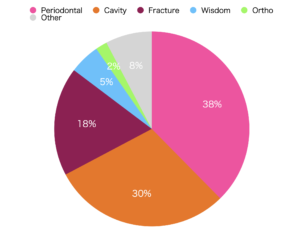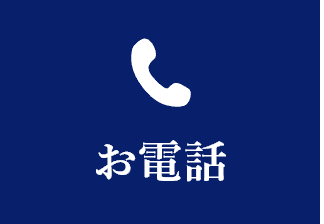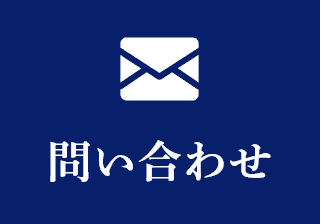Causes of Tooth Loss and the Importance of Prevention

The reason of the tooth extraction is explained by the director dentist, Hiroshi Miyashita, at the Tokyo International Dental Clinic Roppongi near Azabu-Juban station.
According to surveys of dentists and experts, the main causes of tooth loss are:
- No. 1: Periodontal disease (about 40%)
- No. 2: Dental caries (about 30%)
- No. 3: Root fracture (about 20%)
These data were analyzed by dental professionals based on the “Second Survey on Reasons for Extraction of Permanent Teeth” (8020 Promotion Foundation, 2018). With a response rate of 45%, some variance is to be expected, but numerically it can be regarded as a large-scale survey.
During the 7-day survey period, 2,323 dentists extracted 8,003 teeth. The total number of patients who underwent extraction was 6,541. This reflects what typically occurs in everyday dental practice in Japan. On average, one dentist extracted 3.4 teeth per week (8,003 ÷ 2,323 × 53 = 3.4). If this continued for a full year (53 weeks), the total would be alarming, indicating that periodontal disease and caries are generally not being well managed.
However, this is not the case for patients who have been visiting Tokyo International Dental Clinic Roppongi for many years. Because they maintain thorough health management, as we reported previously, they do not end up needing extractions due to periodontal disease or caries. These data differ from situations like ours, where a thoroughly preventive approach is implemented. As a result, the likelihood of extraction decreases. Thus, patients who have been visiting for nearly 20 years have, on average, lost fewer than one tooth (0.7).
[Risks and Preventive Measures for Periodontal Disease]
Periodontal disease is a representative oral condition affecting more than 80% of Japanese people. Especially among middle-aged and older adults, it is a progressive disease that dissolves the bone supporting the teeth (alveolar bone), and because it can become severe without symptoms, early detection and prevention are extremely important.
Recommended preventive measures:
• Careful daily toothbrushing
• Regular dental checkups and professional cleanings
These are the most effective methods for suppressing the progression of periodontal disease through professional oral care. The most important factor is careful daily toothbrushing.
[Risks and Cautions for Dental Caries]
Caries destroy the enamel and dentin. While severe cases may cause pain or sensitivity, symptoms often do not appear. As a result, it can go unnoticed, and over time the tooth’s nerve may die. If left untreated, there is a risk of severe infection or root fracture.
• Even without pain, have regular dental checkups to prevent small lesions from progressing.
• If our clinic has diagnosed that treatment is necessary, the decay is already deep into dentin or beyond; early treatment is key to prolonging the life of the tooth.
Important point:
The most important thing is to prevent caries from forming. Daily brushing and dietary management by the patient help reduce risk; without these, outcomes are not truly effective.
[Risks of Root Fracture and Long Treatment Histories]
A root fracture is a complete crack in the root portion of a tooth and requires extraction. Teeth that have had the nerve removed and teeth that weaken with age have an increased risk of fracture. Before a complete fracture occurs, evidence such as microcracks or excessive force is often found, so have your occlusion checked regularly.
Key points:
• Teeth with removed nerves have a higher fracture risk and require regular checks.
• Early detection and appropriate care can improve the chances of preserving the tooth.
[Risks of Root Fracture and Long Treatment Histories]
A root fracture is a complete crack in the root portion of a tooth and requires extraction. The risk is particularly high in teeth that have had the nerve removed and in teeth that weaken with age. Before a complete fracture occurs, evidence such as microcracks or excessive force is often found, so have your bite (occlusion) checked regularly.
Key points:
• Teeth with removed nerves have a higher risk of fracture and require regular checks.
• Early detection and appropriate care can improve the chances of preserving the tooth.
[A Reliable Approach to Prevention]
Based on expert opinions and cutting-edge clinical data, the following preventive practices are recommended:
• Control of oral bacteria (daily self-care)
• Control of biting forces (especially during sleep)
• Regular dental checkups and bite assessments (professional care)
These enable early detection and management of periodontal disease, caries, and root fractures, contributing greatly to long-term dental health.
At Tokyo International Dental Clinic Roppongi, where such management is implemented, the probability of losing teeth
has been shown to be less than one tooth over 20 years on average.
Thus, maintaining dental health requires preventive practices backed by solid knowledge and many years of clinical experience. See your dentist regularly, and aim for early detection and early treatment.
Make an appointment for consultation today.
Tokyo International Dental Clinic Roppongi
- Address: 5-13-25-2nd Floor, Roppongi, Minato-ku, Tokyo
- Phone: 03-5544-8544
- Closest Stations:
- Azabu Juban (Toei Oedo Line take exit7)
- https://youtu.be/iIeG91YEJTA The way to the clinic from Ohedo Line Exit7
- Azabu Juban (Tokyo Metro Namboku Line exit 5a )
- https://youtu.be/3yniFSfucGg The way to the clinic from Namboku Line Exit 5a
- Roppongi (Hibiya Line exit 3)
We look forward to helping you achieve a healthy, beautiful smile!















